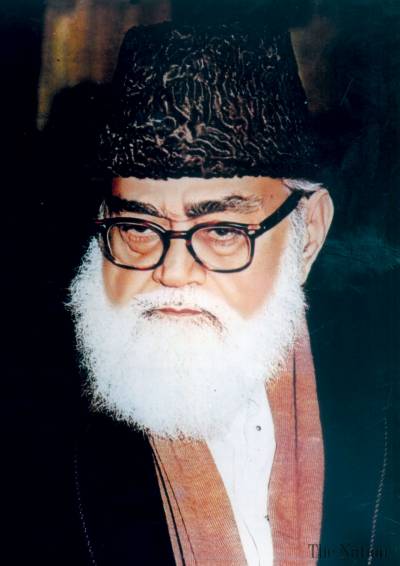One of the major basis for corruption the illness eating away the substance of the Pakistani state, its institutions and its people is perjury. An especially dangerous criminal offence, perjury or lying in court undermines the very purpose of the court, the laws of the country and the judiciary system at large: to bring justice to the people and society. Delivering people justice has always been a central endeavour of any state. The creditability of an administration and government that cannot and does not deliver justice weakens the system and the state. The honest citizens of the country are discouraged from going court because they are not sure that justice will prevail, on the other hand the crooks are comfortable and confident going to court because they are quite sure that they can manage things to their satisfaction.
Pakistani laws do declare lying in court a criminal and punishable with prison offence, unfortunately, those laws have hardly ever been utilized therefore false witness and testimony has become a frequent occurrence in court. With lies prevailing in the court justice suffers. Any improvement in our judicial system thus has to include the fight against perjury.
The present Chief Justice of Pakistan Asif Saeed Khan Khosa took over just over two months ago on Jan 18, he has made the fight against perjury a central point of his tenure. In a recently published judgement, a false witness was identified and an accused who had been convicted based on a false testimony has been acquitted. In order to explain why it was not only possible but mandatory to dismiss the false statement fully the bench headed by CJ Khosa carefully explained why the principle ‘false in uno false in omnibus’ (Latin for ‘false on one account to be considered false in toto’) needs to be reintroduced into court practice in Pakistan.
The judgement examined the principle against the tenets of British law as well as against the injunctions of Islamic law that are the basis of laws and judiciary in our country. While tracing the history of this principle of Roman law in the subcontinent and establishing that lying in court had been present in Indian courts right from their inauguration in the early 19th century the Honourable CJ Khosa quoted an Indian judge arguing in 1945 that the real causes of the fall of the moral of the Indian witnesses that ‘They seem to feel that the Court is an alien body a secular institution something different from themselves and their social and village environments, a place where truth can be mercilessly butchered with impunity without the latest compunction.’ This is an important observation and if this is true the question has to be asked while lying under British colonial rule may have been caused by a sense of alienation why people keep telling lies in independent Pakistan, the country they or their parents have been fighting for?
If the alienation from courts presents until today testifies about two things: One, the identification with Pakistan is not strong enough to recognize its courts as national courts and laws as national laws, this means the minds of our people have even seventy years after independence not been decolonialized. And secondly, it could mean that despite the fact of Pakistan being an independent national state its political set-up and its laws and courts are a British inheritance which are still not owned by our people and considered as alien and something one cannot accept. It is this idea that caused Maulana Maududi in the 1920ies and others after him to reason about the need for an Islamic state a state that rests not on external imported ideas and principles but indigenous ones, those owned and professed by the Muslims.

Another reason established by the learned Judge for the persistence of perjury in courts is the ever-growing class of barristers in Pakistan. He asserts that ‘It is through lawyers that witnesses pass before they appear before the Judge. If they tolerate perjuries and falsehoods and actively or passively by connivance or consent allow a false witness to state false facts the doors of perjury are flung wide apart.’ And thirdly, the criminal law of perjury is for all purposes very seldom resorted to and very seldom successful. That is another cause which makes liars and perjurers bolder and more fearless. That is why CJ Khosa came to the conclusion that despite it being a principle taken from Roman law its application should be made mandatory in Pakistani judiciary. If a lawyer persists with the perjury of his client knowing it to be sick, he should also be convicted as a perjurer and his licence must be revoked. It is the lawyer’s duty to ensure his client is telling the truth, and if not and he is associated with the client’s perjury, he or shamus suffer the consequence thereof.
In a second part he discusses the rule falso in uno falso in omnibus while checking its virtue against Islamic law and the Qur’an. The text of his judgement gives a full quote of all Qur’anic ayats ten all together-that insist on the need to give testimony when one is a witness, to be truthful in that testimony and not to mix truth with falsehood or hide facts. He comes to the conclusion that Islam not only enjoins giving testimony, it also forbids concealing it because concealing evidence is something that is disapproved in Islam. Giving false testimony has many evils for it supports falsehood against truth and promotes injustice and aggression against justice. It also effaces fairness and equity and poses danger to public safety and security. In addition, he mentions that according to the traditions of the Holy Prophet of Islam (Pbuh) false testimony is one of the four greater sins (kabira) that are mentioned by the Prophet (Pbuh). The rule falsus in uno falsus in omnibus can be found almost literally in the Qur’an where it says in surah al Noor verse 4: ‘And those who accuse chaste women and then do not produce four witnesses lash them with eighty lashes and do not accept from them testimony ever after. And those are the defiantly disobedient’ False testimony thus has to be punished and the false witness loses all creditability and is banned from giving testimony. CJ Khosa thus established convincingly that the principle falsus in uni falsus in omnibus present in western law does not contradict Islamic injunctions but is fully supported by them.
The credo of this pioneering judgement reads: ‘We may observe in the end that a judicial system which permits deliberate falsehood is doomed to fail and a society which tolerates it is destined to self-destruct. Truth is the foundation of justice and justice is the core and bedrock of a civilized society and, thus, any compromise on truth amounts to a compromise on a society’s future as a just, fair and civilized society And that was why this judgement ordains that ‘we declare that the rule falsus in uno, falsus in omnibus shall henceforth be an integral part of our jurisprudence in criminal cases and the same shall be given effect to, followed and applied by all the courts in the country in its letter and spirit. It is also directed that a witness found by a court to have resorted to a deliberate falsehood on a material aspect shall, without any latitude, invariably be proceeded against for committing perjury,’ unquote




